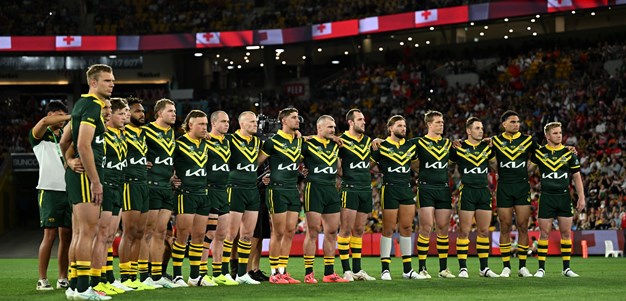The NRL Competition Committee has recommended that no change be made to the current interchange system.
The recommendation will now go to the Australian Rugby League Commission before a final determination is made on interchange.
The Competition Committee's unanimous recommendation was for the number of interchanges per team per game to continue to be capped at eight.
The Committee made the recommendation after being presented with data including a report by Professor Kevin Norton, a Professor in Exercise Science at the University of South Australia, which compared the 2019 season to the past three seasons (2016-18), since interchange was reduced from 10 to eight.
The data showed that, due largely to the change in officiating philosophy in 2019:
- Both the number and intensity of collisions have significantly reduced in 2019, reversing the trend seen across the 2016-2018 seasons
- Both the number of stoppages and total stoppage time have significantly reduced in 2019, reversing the trend seen across the 2016-2018 seasons
- The total distance covered per game has increased across all positions except hookers in 2019 compared to 2018
"On the evidence presented, there is simply not enough reason to change the number of interchanges now," Penrith Panthers Coach Ivan Cleary said.
"We made the point last year that we wanted to defer until halfway through this year to make a decision based on the way the game is heading. Now that we have done that, we feel there is no need to make a change."
NRL Head of Football Elite Competitions Graham Annesley added: "It became clear that a change to the approach by Match Officials, as well as the shot clock for drop-outs and scrums in 2019, had contributed to a change to the game which was the equivalent to a reduction of interchanges.
"Some of the levers which have been pulled this season have contributed to some of the key trends heading in the direction we want them to.
"As a game, we want to see more entertainment, unpredictability, more continuous football – as well as a safe environment for the players.
"We are not completely ruling out a reduction in interchange in the future based on trends and players and coaches adapting to changing environment. But for the immediate term there was no support for a change.
"There was unanimous support that interchange will remain at eight until it's agreed that the system requires a further change."
The meeting was also told that 60 percent of the collective Clubs, and 73 percent of players – based on an RLPA Player Advisory Group survey – did not support a further reduction in interchange at this time.
"We're supportive of this direction based on the fact that key metrics are shaping in the right direction and players have actively been engaged in the discussion," RLPA General Manager Stakeholder Relations Clint Newton.
"We're looking forward to continuing to help advance discussion on a more innovative and entertaining game."
The Competition Committee includes Cleary, North Queensland Cowboys Coach Paul Green, Immortal and Kangaroos Coach Mal Meninga, Darren Lockyer, Newton, former Coach John Lang as well as Annesley, NRL CEO Todd Greenberg, ARLC Chairman Peter Beattie and Commissioners Wayne Pearce and Peter V'landys.
The Competition Committee was also told that the 2019 season had (after 13 rounds) delivered:
- more than two-and-a-half hours more ball in play so far, and a reduction in dead time of five-and-a-half hours compared to the same time in 2018.
- a three-hour reduction in elapsed game time compared to the same time in 2018
- an additional 250 sets of six compared to the same time in 2018
Average ball in play time per game was 54.16 minutes after Round 13, compared to 52.43 minutes at the same point in 2018.
Contributing factors for the trends included a significant reduction in penalties (1777 in 2018 down to 1322 in 2019) and penalty goal attempts (257 in 2018 down to 160 in 2019), as well as the reduction in scrum and drop-out clock time limits.
The group flagged a discussion on unpredictability and assessing ways to make the game even more entertaining for its next scheduled meeting later this year.
"One of our key objectives is producing more entertainment for our fans and we have seen some positive trends in 2019," Mr Annesley said.
"Our games have produced more football compared to last year and elapsed time has also been reduced.
"This is something the Competition Committee will continue to work on."



